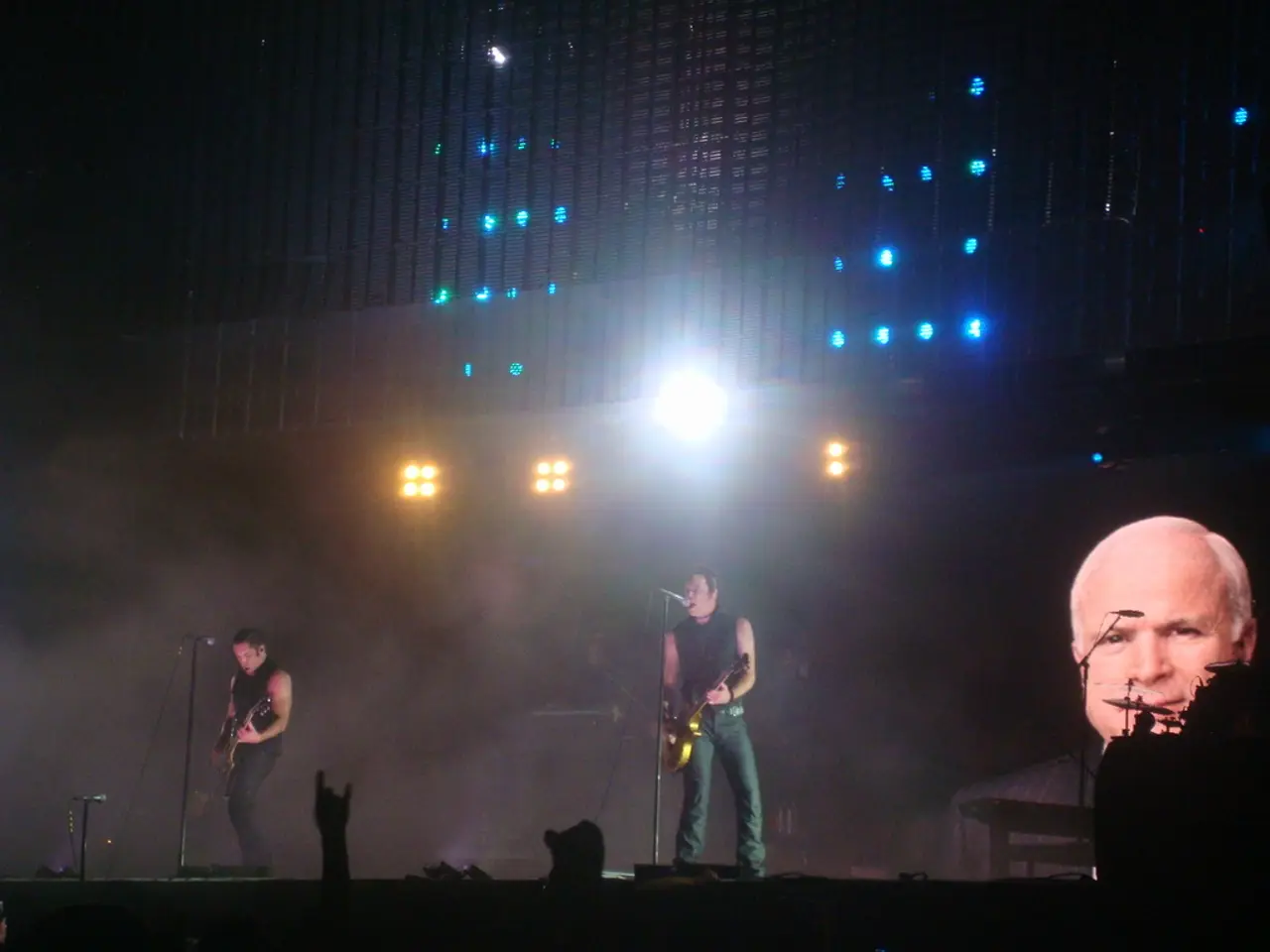Striking Snapshots of the Pioneering Music Acts from the 1960s Decade
In the transformative era of the 1960s, two significant movements reshaped the American music scene - the British Invasion and the rise of Motown.
Artists like Diana Ross and The Supremes, the Temptations, Stevie Wonder, and Marvin Gaye, alongside Aretha Franklin, Otis Redding, and Sam Cooke, became household names. These musicians, part of the Motown and soul movements, broke down racial barriers in popular music, combining gospel influences with secular themes that spoke to personal and collective experiences.
Meanwhile, across the Atlantic, British bands like The Beatles and others brought a renewed rock influence. They took direct influence from American blues, rock and roll, and R&B acts, then reinterpreted those sounds through a British lens, blending folk, jazz, blues, and skiffle influences to produce music that felt both familiar and innovative.
The arrival of the Beatles seemed to mark a new era of optimism for the American public. Their historic appearance on The Ed Sullivan Show in February 1964, marked the beginning of "Beatlemania" in the United States. The Beatles and the Rolling Stones, two of the bands that symbolized the cultural changes of the '60s, brought grittier and blues-influenced sounds to the music scene.
British bands of the 1960s helped revive American interest in rock and roll at a time when the genre was experiencing commercial decline and division under large corporations. These British groups often incorporated and covered American songs but gave them upbeat, accessible interpretations that appealed to wide audiences in the U.S., thereby fueling a cultural exchange that reshaped American popular music.
Simultaneously, Berry Gordy founded Motown Records in 1959, which became the most successful Black-owned record label in history. The "Motown Sound" featured sophisticated production, memorable melodies, and polished performances that appealed to both Black and white audiences.
The success of soul and Motown among 1960s bands fundamentally changed the music industry's power dynamics, establishing Black artists as major commercial forces and cultural influencers. This shift was a significant step in addressing social issues and breaking racial barriers within the music industry.
Folk-rock became a defining genre of 1960s bands, blending traditional folk music with the energy of rock and roll. The Byrds helped popularize the folk-rock sound with their jangly 12-string guitars and harmonized vocals. Folk-rock songs became rallying cries at marches, demonstrations, and counterculture gatherings.
Moreover, British bands helped define London as the epicenter of a global pop culture wave known as "Swinging London," influencing not only music but fashion and youth culture, intensifying America's countercultural movements in the 1960s.
Musicians in the U.S. began to use their talent for social commentary and political activism. Joan Baez, Pete Seeger, and Phil Ochs continued the protest tradition of 1960s bands, while Bob Dylan's shift from acoustic folk to electric rock at the 1965 Newport Folk Festival was a watershed moment, despite initial controversy from folk purists.
In summary, the British Invasion and Motown together diversified and energized the American music scene, propelling the evolution of popular culture during that decade. British bands of the 1960s contributed by reinvigorating rock and roll with their own interpretations of American roots music, sparking new cultural trends, and helping to shape the soundscape of American music and youth culture during a transformative era.
- The 1960s, a pivotal era, witnessed the transformation of American culture through music.
- Celebrities like Diana Ross and Stevie Wonder, part of the Motown movement, became renowned for breaking down racial barriers.
- Meanwhile, British bands such as The Beatles and The Rolling Stones brought a renewed rock influence to the music scene.
- The Beatles' appearance on The Ed Sullivan Show in 1964 marked a shift in American popular music and began the era of optimism.
- British bands, like The Beatles and The Rolling Stones, influenced American interest in rock and roll, revitalizing a genre in decline.
- Motown Records, founded by Berry Gordy, built a legacy as the most successful Black-owned record label in history.
- The Motown Sound, characterized by sophisticated production, memorable melodies, and polished performances, resonated with both Black and white audiences.
- Folk-rock became a defining genre of the 1960s, combing traditional folk music with the energy of rock and roll.
- London emerged as the epicenter of global pop culture, known as "Swinging London," influencing not just music but also fashion and youth culture.
- Musicians like Joan Baez and Bob Dylan used their talent for social commentary and political activism, inspiring change within popular culture.
- Education and self-development materials, including books and online resources, illuminate the impact of the 1960s music revolution on American culture.
- Personal growth and relationships were heavily influenced by the music and messages of 1960s bands, shaping social norms and values.
- Sports, especially football, soccer, baseball, hockey, and basketball, captivated the public during the 1960s, creating a sense of national identity.
- The music industry underwent significant changes, with Black artists gaining power and influence, addressing social issues, and breaking racial barriers.
- Entertainment platforms like social media, movies, and television further popularized the music and messages of 1960s bands.
- Sports analysis and sports-betting websites discuss the parallel evolution of sports culture and the music industry, with many iconic athletes and musical acts emerging during the same era.
- Mixed martial arts gyms sometimes play classic 1960s songs during training sessions, embodying the spirit of the era and fostering a sense of camaraderie.
- Today, the British Invasion and the rise of Motown continue to resonate, with the themes and messages relevant in discussions about crime, justice, learning, politics, sci-fi, and pop culture.





